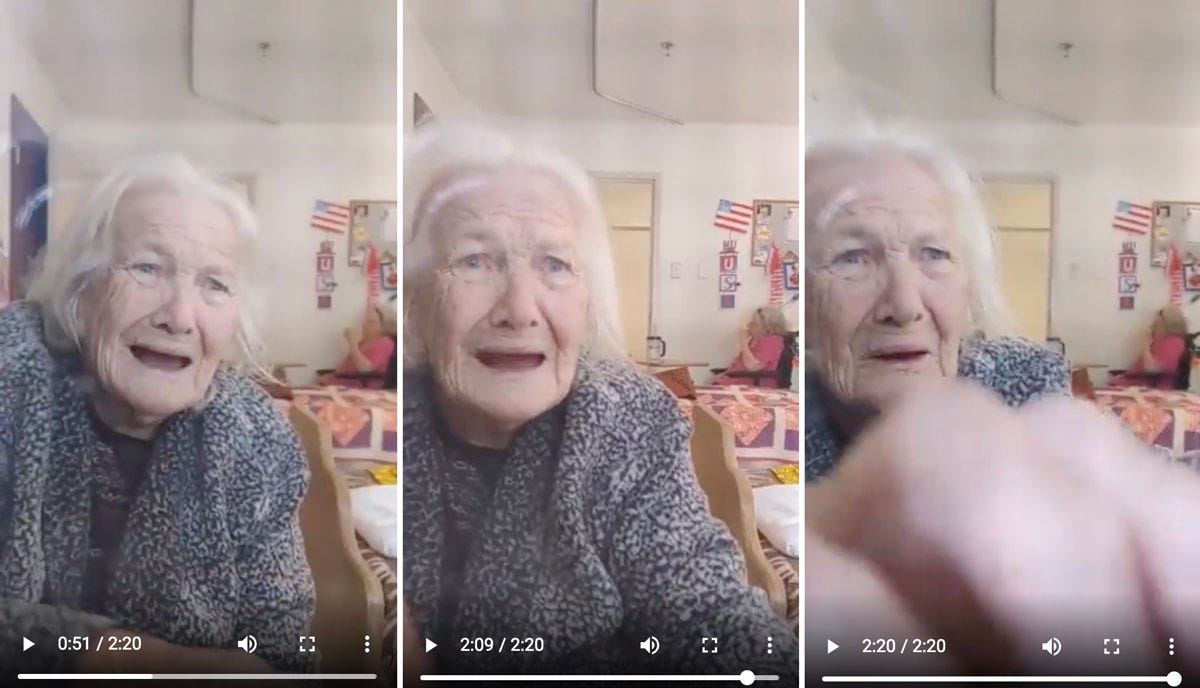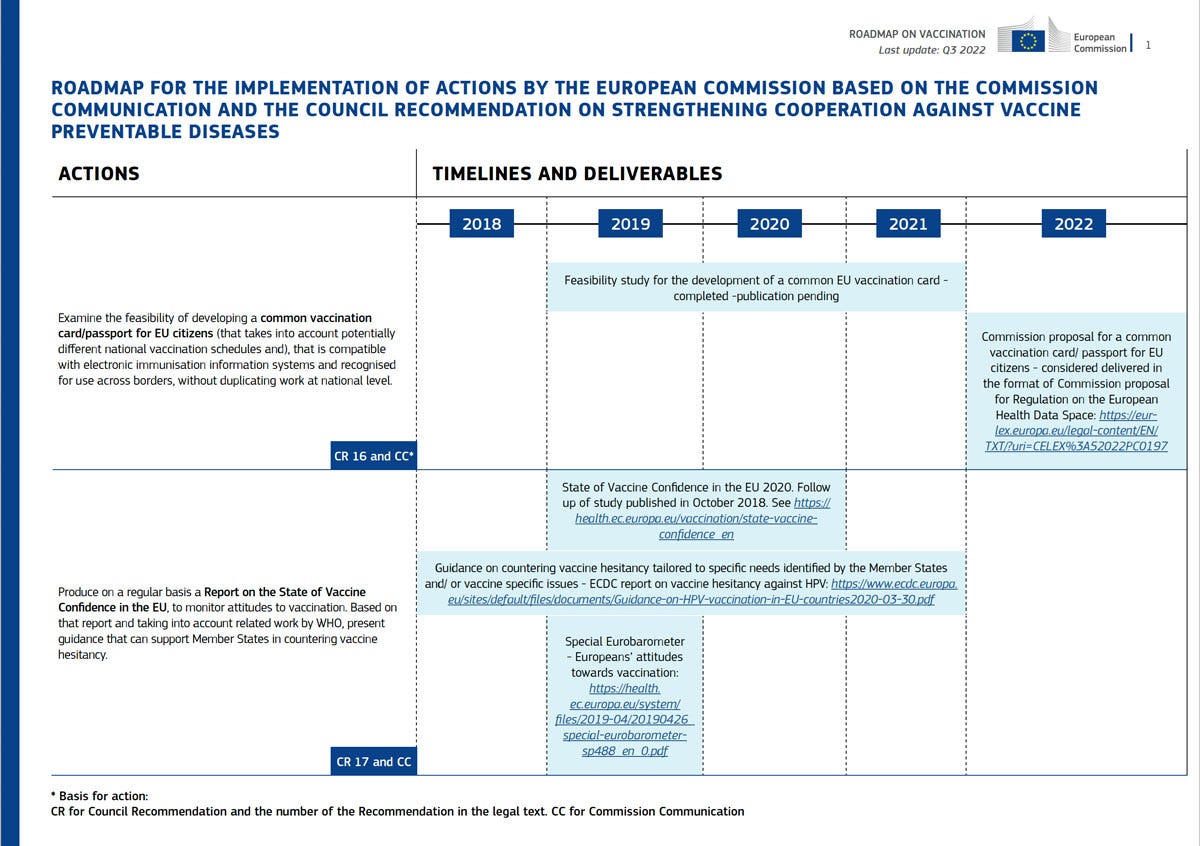by Margaret Anna Alice. Originally published on her Substack.

Much to my glad surprise, one narrative believer1 was plucky enough to respond to 30 Questions for a Narrative Believer!
While I received numerous responses from narrative skeptics (which I plan to share later—I’m still trying to find time to read them all), this has been my first (so far) from someone who identifies as pro-lockdown, pro–social distancing, pro-masking, pro–school closures, and pro-vaxx (although against mandates and vaxxports).
I am grateful to this individual for his willingness to participate as well as to his wife, the reader who shared these questions with him. I will be referring to her as CA and to him as CAH (“CA’s husband”) to keep the spotlight off of them specifically and instead on the exchange, which I feel was cordial and I hope will open the door for further exploratory conversations between the two of them.
For ease of reading, I have interspersed the original questions (formatted as pull quotes to distinguish from his comment), removed the repetition of those questions in our responses, and inserted my follow-ups to each of his answers rather than just dumping his comment followed by my lengthy response.
CAH: Hi, I’m using my wife’s account who thinks that Covid vaccines are dangerous (like most of those who read your article). (CA here, taking a moment to specify, while my husband takes a call…I think the mRNA platform holds promise for quick crisis response, but understand the technology to be in its infancy. I also understand the lipidnanoparticles to be inflammatory, taking spike protein indiscriminately and uncontrollably throughout the body and past protective membranes…)
I took the 2 shots and happy to have done so: I thought (back then) that the benefits outweigh the risks. I have read many of my wife’s articles, talked about this issue for 18 months now. We are part of a multicultural church (in Montreal) and thus have heard stories from multiple countries (Latin America, Africa, etc). Most of the people in our church have chosen to take the shot (including many elderly). I have yet to see someone dying from the vaccine…
MAA: Thank you so much for taking the time to share your thoughts, CA’s Husband! (I hope it’s okay that I call you that since I don’t know your name 🙂
You are the first person on your side of this issue who has been brave enough to respond, and I sincerely applaud your willingness to engage.
When you say you thought “the benefits outweigh the risks,” what are those benefits exactly? Since it is now widely recognized even in mainstream media that the injection doesn’t keep you from getting or spreading COVID, nor does it prevent hospitalization or death (indeed, the numbers for both are far higher in the injected as I shared in several hyperlinked references in the original article), I am curious to hear what benefits you perceive and why those are worth the well-documented risks of debilitating injuries and death (1,471,557 adverse events reported to the CDC through November 25, 2022; that includes 32,508 deaths—37 percent of which occurred within the first week of injection).
You said, “I have yet to see someone dying from the vaccine.” How many people have you seen die of starvation? Malaria? Diarrhea? Tuberculosis? Meningitis? Homicide? Tsunamis?
But you certainly wouldn’t say people don’t die of those causes, correct?
Your reliance on your personal experience for drawing conclusions about the larger objective reality reveals several cognitive biases, including:
- Availability heuristic, which is described by its coiners Amos Tversky and Daniel Kahneman as “whenever [one] estimates frequency or probability by the ease with which instances or associations could be brought to mind” [or conversely, the absence of them, as in your case].
- Base rate fallacy, which occurs when people base decisions on their personal, specific experience instead of “objective, statistical information” and can cause them to “make inaccurate probability judgments.”
- Illusion of explanatory depth, which tricks us into believing we understand a concept in greater depth than we actually do.
These are compounded by the overarching cognitive biases affecting the experimentally injected in general, the following being but two examples among many:
- Commitment bias, which pretty much applies to everyone who chose to get injected based on a set of information now proven fallacious but have failed to adjust their perspective in light of new information. This is considered a “barrier to personal growth” and often prevents people from recalibrating despite substantial evidence compelling them to do so. Sunk cost fallacy is closely related to this bias.
- Ostrich effect, which involves avoiding negative information and often exacerbates the situation by causing the person to postpone facing a problem that snowballs in severity the longer it is ignored.
CAH: In this whole discussion, people seem to forget:
- there are other governments involved in this whole story, some of them not on friendly terms with the US (such as Russia, Cuba, Iran, …). Most of them chose to vaccinate their people (often with worse vaccines)
- There are other vaccines beside Pfizer and Moderna (I believe there are a dozen vaccines in the world). Different vaccines are encouraged by various governments.
MAA: I’m not clear on your point here—are you saying that because other governments chose worse vaccines, that means the US government’s 1.4 million reports of adverse events are okay by comparison?
Your second point—that there “are other vaccines beside Pfizer and Moderna”—again doesn’t make any sense to me. I and many others have documented the harms caused by other vaccines, including Johnson & Johnson (Janssen) and AstraZeneca. Janssen, as you likely recall, was even temporarily pulled from the market early on due to its association with thrombosis and Guillain-Barré syndrome. That other vaccines are also causing injuries doesn’t negate the fact that Pfizer and Moderna are doing so, too.
CAH: I think the whole article has an arrogant tone to it (the title, to begin with. Unless, you use the plural “Narratives”). If a true discussion is sought, the wording has to be less offensive…
MAA: Regarding your point about the arrogant tone, I do apologize for coming across that way. As I mentioned in response to other commenters questioning the use of “narrative believer,” I honestly tried to think of a succinct term that could be used to describe those who align with the media’s presentation of the various facets of this topic, and this was the most neutral one I could come up with (I intentionally avoided “Covidian” as there are kindhearted, intelligent, decent individuals who believe the narrative without being full-blown cult believers).
“Narratives” doesn’t work because I’m referring specifically to the statements the media, pharmaceutical corporations, governments, and allied agencies propagated about COVID. If you have any suggestions on an alternative descriptor to use instead (shorter than “People Who Believed What the Media Told Them About COVID” ;-), I welcome your ideas.
Now to your answers …
1) What is your overall perception of what has occurred since COVID entered the scene nearly three years ago, and how has your thinking evolved on the following topics over time (if it has)?
a) lockdowns / b) social distancing / c) masking / d) school closures
CAH: I think they [lockdowns] were necessary in the beginning. Historically (if we learned anything from past diseases such as the Spanish flu, the plagues, etc) it was the right thing to do. Same for social distancing, masking, school closures.
MAA: Your response to this one especially surprised me as it is now generally accepted by even the most ardent Covidians that this policy was a catastrophic failure. Johns Hopkins conducted a widely shared meta analysis in which they concluded:
“that lockdowns have had little to no public health effects, they have imposed enormous economic and social costs where they have been adopted. In consequence, lockdown policies are ill-founded and should be rejected as a pandemic policy instrument.”
They also published an article in which they noted that:
“COVID-19-related lockdowns, border closings and more may have killed hundreds of thousands of children under the age of five in the first year of the pandemic.”
Similarly, UNICEF reported that 150 million more children are now suffering poverty as a result of lockdowns and related COVID measures.
Is that a cost you’re willing to accept in return for “protection” (failed, clearly) against a virus with a 99.98-percent survivability rate?
The authors of this Lancet article state:
“We believe that lockdowns kill people through disruption of health services and deprivation of livelihoods. At the bottom of the global pile, recession is not just a matter of having less: it is a matter of life and death. When we lockdown, we cause deaths in the developing world to prolong lives in the developed world.”
b) social distancing
And how exactly did this help, again, when one of the very officials involved in manufacturing this policy admits it was “arbitrary and not science based”? And it resulted in the lonely, agonizing final days and deaths of countless individuals like Holocaust survivor Inge Ginsberg and these poor, tortured elders?


c) masking
This, too, is now well-known to have caused infinitely more suffering than good (with even Chief Propagandist Leana Wen admitting cloth masks are “not appropriate” and saying “masking has harmed our son’s language development.” Mainstream outlets like The Atlantic and NPR are now recognizing the threats of masking, particularly to children. The long-established scientific consensus that masking is ineffectual against respiratory viruses was discarded during COVID, hence Fauci’s notorious flip-flop from conventional health recommendations to politicized coercion tactics.
You can learn more about the scientific evidence regarding the harms and inefficacy of masking in this article.
You may also find this 3D visualization showing virus sizes versus masks informative:
d) school closures
The nonexistent benefits and seismic damage caused by school closures was so devastating, it merited the writing of an entire book documenting the incalculable cost to children’s psychological, emotional, and physical health:
The Children’s Inquiry: How the State and Society Failed the Young During the COVID-19 Pandemic
As the authors note, COVID policies resulted in:
“not only life-changing but also fatal injuries that children have suffered. Disruption to healthcare services during the pandemic is thought to have caused some 228,000 additional child deaths in South Asia alone; in England, within weeks of the first lockdown, Great Ormond Street Hospital reported a 1,493% rise in cases of abusive head trauma. The case of Logan Mwangi, a five-year-old boy ‘hidden from the outside world’ while isolating with Covid, only to be murdered by his mother, stepfather and a teenager before his body was dumped ‘like fly-tipped rubbish’ in a river, is a shocking but sadly not unique example of a child killed in circumstances where routine safeguards had been disrupted during the pandemic.”
e) COVID vaccines / f) mandates / g) vaccine passports
CAH: I don’t think Covid vaccines should be compulsory nor the passports.
MAA: I am relieved to know you feel the vaccines and passports should not be compulsory. You may be interested to know vaccine passports have been a long-term goal of governments for years, with this EU Vaccination Roadmap indicating a desired ETA of vaccine passports as a “deliverable” by 2022:

h) natural immunity / i) early treatment protocols
CAH: I have yet to see early treatment work (my wife who has done her best to follow early treatments — including Quercetin, Vitamin C, Zinc; Ivermectin on day 6) ended up in the ICU (she’s 44). I had the 2 shots and Covid was just a flu. Since then, we’ve had Covid 2 more times (at least).
MAA: Once again, you are falling prey to the cognitive biases of availability heuristic and base rate fallacy as you draw on your personal experience of two individuals versus the clinical experience documented in hundreds of thousands of success stories worldwide by physicians and scientists such as Dr. Pierre Kory; Dr. Vladimir Zelenko; and Dr. Tess Lawrie. Dr. Brian Tyson and Dr. George Fareed chronicled their successful treatment of 7,000 patients in this book:
You will find numerous citations demonstrating the efficacy of ivermectin, including dozens of peer-reviewed sources, in the following articles:
Note that your wife started on Day 6, whereas the crucial window of opportunity for maximum efficacy of early treatment protocols is the first five days, so that could account for the lack of impact in her case.
j) free speech vs. censorship
CAH: Obviously, Free speech is important. Unfortunately, there is a lot of misinformation on social media (ex: someone sharing a video about the pope blessing pedophile unions; the person believed it to be true and coming from a “trusted source”).
MAA: I appreciate your acknowledgment that “free speech is important.” You immediately follow that up with an example of misinformation on social media that I agree with you anyone would be silly to believe. Is your implication that free speech is important but less important than protecting people from “misinformation,” whatever the Ministry of Truth gatekeepers deem that to be? Or are you simply acknowledging the reality that people will always say and believe silly things but they have a right to do so and their free speech should be protected as a fundamental human right?
k) individual rights vs. social responsibility
CAH: There is a balance here. Each crisis has to be handled with wisdom. That’s where we need leaders of character and wisdom.
MAA: I agree with you regarding the need for “leaders of character and wisdom.” Unfortunately, the very leaders who exhibited the greatest character and wisdom (e.g., World Council for Health Founder Dr. Tess Lawrie) were sidelined for those who exhibited the greatest willingness to promote lies on behalf of pharmaceutical corporations collecting billions in profits and governments promoting tyrannical agendas (e.g., the German Bundestag and South African government).
As far as “balance” goes, that slippery slope has been exploited by totalitarian and genocidal regimes throughout history, as demonstrated in this piece.
l) the role of governments, agencies, and influential figures in public health policy
CAH: This is a very country/state dependent answer. Canada was maybe too heavy handed. Should the government play a role in it? I think so. To what extent? We need good leaders to make these decisions.
MAA: You make an interesting point in saying, “This is a very country/state dependent answer.” Why *did* so many countries around the world work in lockstep to implement the same exact COVID policies, many previously recommended against during a pandemic by the WHO?
See these articles for more on the one-size-fits-all approach that has been applied internationally for the first time in history, with plans of ramping up this “One Health” approach even more for future pandemics:
- Letter to the US HHS Office of Global Affairs
- What If They Threw a Pandemic and Nobody Came?
- A Mostly Peaceful Depopulation
I do appreciate that you recognize Trudeau was too heavy-handed, so it is reassuring to know you are sensitive to totalitarian tactics.
2) How did you arrive at those views? Did you find you felt one way about a topic initially and then it changed—and if so, how did it change and why?
CAH: My perspective hasn’t changed much but I knew there were risks involved in taking the vaccine or not. By looking at the evidence around me (vaccinated ppl dying vs unvaccinated) I haven’t seen many deaths on either side. However, most of the elderly I know have been vaccinated.
MAA: (see cognitive biases outlined above)
3) Were you in agreement with most of the people around you, or did some of your friends or family members see things differently? How did you work through those differences, if any?
CAH: I have been in contact with people from both camps.
MAA: I am glad to hear you have maintained contact with both camps rather than remaining in an echo chamber as so many (on both sides) have chosen to do. One of the goals of these questions was to encourage dialogue between people of differing perspectives as that is becoming an increasingly rare occurrence in our tribalized world, which is only fanning the flames of division.
4) Do you tend to consume a range of media representing diverse viewpoints, or do you pretty much stick to a few trusted sources? If the latter, what do you consider reliable sources of news and information?
5) Which of these media do you consume, if any (please share the specific outlets you turn to most often): a) television; b) newspapers; c) magazines; d) radio; e) mainstream news websites; f) social media; g) newsletters?
CAH: I never watch TV. Mostly internet (Youtube, various news outlets in English, French, Arab, or German origin). I read pretty much everything that comes on my computer and draw my own conclusions.
MAA: I am THRILLED to hear you never watch TV, so you’ve already conquered #2 in my 12-step recovery program for menticide.
You sound like you have a balanced media diet and exercise critical thinking when evaluating sources. This gives me hope that you will do the same when reviewing my articles and the thousands of references I have provided throughout my work while setting aside your confirmation bias and other cognitive biases that may prevent you from approaching this information with an open mind.
6) Which search engine(s) do you use? Do you trust sources like Wikipedia and sites that present themselves as fact-checkers (e.g., Snopes)?
CAH: Not necessarily.
MAA: Wonderful to hear you practice skepticism and don’t automatically succumb to authority bias when reviewing sources that present themselves as authoritative.
7) If you had heard the views of the many scientists, physicians, and other qualified experts presenting data, research, expertise, and informed opinions that contradicted the narrative being promoted by mainstream media, would you have thought twice before accepting what the pundits were saying?
CAH: [question skipped, I presume accidentally]
8) Did the use of namecalling (e.g., “anti-vaxxer,” “conspiracy theorist,” “right-wing extremist,” “misinformation spreader”) cause you to automatically dismiss and avoid evaluating certain sources for yourself?
CAH: I try not to call people names. Including “narrative believer” ;P
MAA: Haha, touché, CA’s Husband 🙂 Like I said, I welcome your suggestions for an alternative term to “narrative believer.”
9) How many COVID shots have you had? How many are you willing to get—and how often? Do you think once you and your loved ones received the injection, you experienced a “buy-in” effect and could no longer evaluate the risks objectively?
CAH: 2 shots. I think after having Covid 3 times, I should be good for a while. I think your question is biased.
MAA: You have had two shots and have gotten COVID three times, and you still think the shots are effective? 🙂
I reviewed my original question, and I see that I asked how many shots you had, how many you’re willing to get, and how often. I also asked if you think you may have experienced a “buy-in” effect that impedes your ability to evaluate the risks objectively. How are any of those questions biased—or were you just making a clever quip?
10) Does it concern you that vaccine manufacturers have zero liability should recipients experience any potentially debilitating or even lethal side effects? This is thanks to emergency use authorizations, and, once those expire, the 1986 National Childhood Vaccine Act, which shields pharmaceutical corporations from responsibility for damages if the product is added to the childhood schedule of vaccinations.
CAH: I wasn’t aware that drug companies are liable for anything (except maybe if they tried to hide information or do something wrong on purpose). I don’t think Pharma is God.
MAA: Your response to this question is fascinating. I don’t actually know what you mean when you say you “don’t think Pharma is God,” but I’m guessing you mean they aren’t infallible and that is why you don’t think they are (should be?) “liable for anything”?
Forgive me if I’ve misinterpreted your statement, but it sounds like you’re saying pharmaceutical corporations—unlike every other corporation on the planet—should not be held liable if their products (unintentionally) cause harm? So if a car manufacturer, for example, produces a car with an exploding gas tank (h/t Sage Hana), they should not have to pay compensation to those harmed or the families of those killed by the explosions?
Outside of emergency use authorizations and products shielded by the 1986 National Childhood Vaccine Act, pharmaceutical corporations are still liable for damages from their products, which is why Merck had to pay $4.85 billion in the Vioxx settlement, for example.
Here is a litany of other lethal and injurious products pharmaceutical companies and other corporations have profited from (and were eventually found liable for).
CAH: Sorry — I don’t have time for 20 more questions. 🙁
MAA: No worries that you don’t have time for the remaining 20 questions (I don’t have time to respond to more responses, myself 😆).
You have already exceeded my expectations, and I thank you for sharing your perspective. I understand if you don’t have time to respond in detail to this comment, but I do hope you will challenge your cognitive biases and take the time to review some of the links I’ve provided. I encourage you to discuss your findings and your journey with CA and hope you will continue to ask questions and apply your critical thinking skills to the information you encounter.
As mentioned in the original article, I do plan to share responses with my readers, so please let me know how you would like to be identified if different from “CA’s Husband” 😉 I can also obscure her name if desired and just use initials (e.g., CA and CA’s Husband) in the post (addendum: I decided to go with initials as a precaution).
Meanwhile, I wish you and CA a fruitful dialogue; joyful holiday season; and many happy years to come. Peace and gratitude to you both 🕊🤗
Note: Inline links have been embedded for ease of reading. I have left mistakes intact for fidelity.
© Margaret Anna Alice, LLC

Note: Purchasing any items using Amazon affiliate links included in my content will further support my efforts to unmask tyranny.
- I apologize to the participant for the use of “narrative believer,” which some have interpreted as pejorative. I have asked everyone who has expressed this objection (including him) to please help me come up with a noninflammatory, succinct term that describes those who accepted the COVID story being told by mainstream media, governments, pharmaceutical corporations, and agencies profiting from this ever-fluctuating and yet perfectly synchronized narrative. I am open to suggestions. Meanwhile, I have used this term in the title of this piece so people understand it includes responses to 30 Questions for a Narrative Believer.